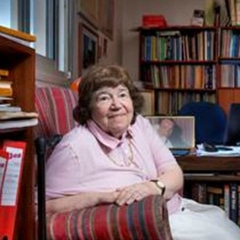Miriam Ben-Peretz

Member Since: 2010
Miriam Ben-Peretz is Professor Emerita of Education at the University of Haifa. She is former Dean of the School of Education at the University of Haifa, and past President of Tel-Hai Academic College. The major fields of research and teaching of Prof. Ben-Peretz include curriculum studies, especially the interactions between teachers and curriculum materials; curriculum policy and evaluation; issues of teacher education, especially reform of teacher education programs; teacher thinking with a focus on learning from experience; the culture of teachers and teaching; policy making in education. She has been a Visiting Professor and Lecturer at American, Canadian and European universities. She authored numerous articles and chapters in books, as well as several books including: The Teacher-Curriculum Encounter: Freeing Teachers from the Tyranny of Texts (SUNY 1990), The Nature of Time in Schools (with Rainer Broome) (Teachers College, 1990), Learning from Experience: Memory and the Teacher’s Account of Teaching (SUNY 1995), Behind Closed Doors: Teachers and the Role of the Teachers’ Lounge (with Shifra Schonmann) (SUNY 2000) and Policy-making in Education: A Holistic Approach in Response to Global Changes (Rowan & Littlefield 2009). In 1997, Professor Ben-Peretz was awarded the Lifetime Achievement Award, in recognition of outstanding contribution to curriculum studies over an extended period of time, Division B, Curriculum Studies, of the American Educational Research Association. In 2012 she was a recipient of the American Educational Research Association, Division K, Legacy Award for teaching and teacher education. In 2006 she was awarded the Israel Prize for Research in Education. In 2015 she was a recipient of the Israeli EMET Prize for Art, Science and Culture, specifically in Education (the prize in education is awarded once every five years). Professor Ben-Peretz is also the co-editor (with Sharon Feiman Nemser) of the book, “An Arena for Educational Ideologies: Current Practices in Teacher Education Programs” (Rowaman & Littlefield, 2017).
